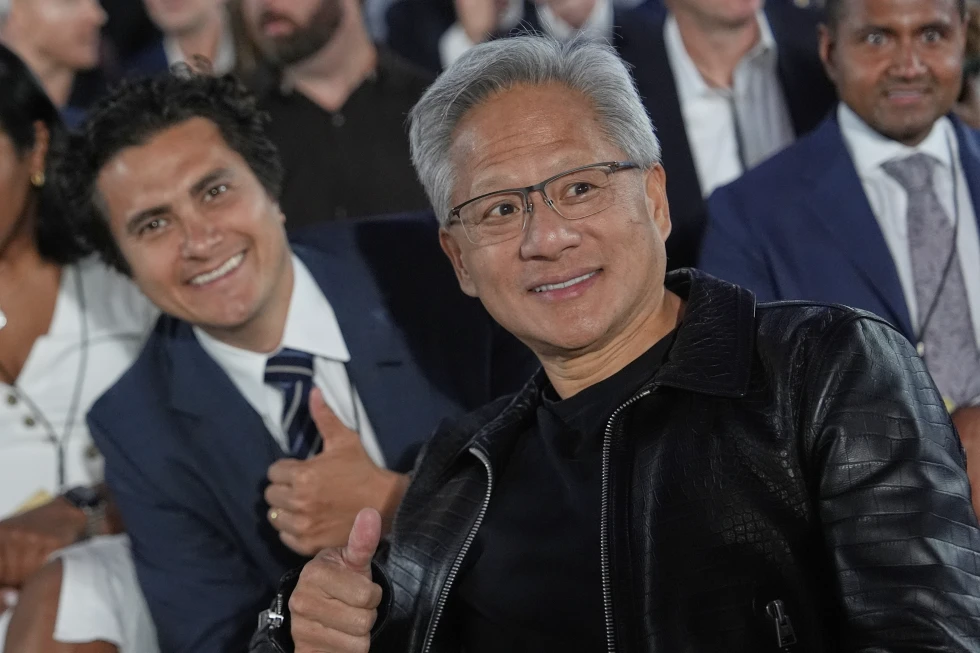US to Get 15% of Nvidia and AMD China Chip Sales in Rare Deal

US to Get 15% of Nvidia and AMD China Chip Sales in Rare Deal
NEW YORK — Nvidia and AMD will share 15% of their revenue from chip sales to China with the U.S. government. This revenue-sharing arrangement is part of an agreement to secure export licenses for advanced semiconductors.
The Trump administration blocked sales of high-end chips to China in April over national security concerns. In July, Nvidia and AMD revealed that Washington would allow the sale of Nvidia’s H20 and AMD’s MI308 chips, both vital for AI development.
Trump Confirms the Revenue-Sharing Deal
President Donald Trump confirmed the arrangement Monday. He said he initially demanded 20% of the sales revenue before Nvidia CEO Jensen Huang negotiated the rate down to 15%.
“We negotiated a little deal. He’s selling an essentially old chip,” Trump said.
Nvidia did not comment on the revenue-sharing details but confirmed it would follow U.S. export rules. “America’s AI tech stack can be the global standard if we move fast,” the company said in a statement.
Political and Legal Concerns
Rep. Raja Krishnamoorthi, top Democrat on the House Select Committee on China, called the deal “a dangerous misuse of export controls.” He urged full transparency from the administration, stressing that export policies must be based on security, not disguised taxation.
Derek Scissors of the American Enterprise Institute questioned the legality of the deal. “Fifteen percent of sales revenue is essentially a tax,” he said. Scissors warned it could set a precedent for export taxes or be used only in politically sensitive cases.
Industry and Trade Impact
In July, Nvidia warned that strict export limits could cost the company $5.5 billion and harm U.S. competitiveness in one of the world’s largest tech markets. The company also warned that such policies might push other countries toward China’s AI technology.
Commerce Secretary Howard Lutnick linked the renewed chip sales to a broader trade deal on rare earth magnets between the U.S. and China.
Restrictions on advanced chip sales are central to the AI race between the U.S. and China. Supporters say they buy time for U.S. firms to stay ahead. Critics argue that loopholes undermine the restrictions and may even fuel Chinese innovation, pointing to the launch of China’s DeepSeek AI chatbot earlier this year.
SOURCE: AP News
: 282







